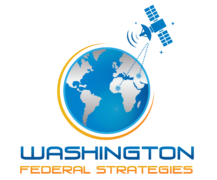
Join us for a set of technical lectures presented by industry subject matter experts.
Tuesday, November 14th
9:30am to 3:30pm EST
Location: Intelsat, 7900 Tysons One Pl. Epic A & B, McLean, VA 22102
The presentations are structured to build on the regulatory requirements for licensing and approvals, then the practical testing guidance to assure regulatory compliance. Lastly, we look at the near future efforts to standardize and continue efforts to build a future toward 6G. For more information and detailed bios of the speakers, please visit the registration link.

Cost: Complimentary
Meals: Lunch will be provided
Parking: Parking will be validated. Please bring your ticket from the garage
Agenda:
| 8:45 – 9:30am | Registration |
| 9:30 – 10:30am | Learn to Launch: Overview of Space Regulatory Procedures and Requirements |
| 10:45 – 12:00pm | Satellite RF System Testing Guidance for Regulatory Technical Compliance |
| 12:00 – 1:00pm | Hosted Lunch with Demonstrations |
| 1:00 – 2:15pm | 5G Non-Terrestrial Networking Takes Flight, a look at possible new services |
| 2:30 – 3:30pm | 6G Global Research, an early look at possible new capabilities |
Learn to Launch: Overview of Space Regulatory Procedures and Requirements
Speaker: Anne Cortez, CEO of Washington Federal Strategies
Anne Cortez, a regulatory licensing expert, will explain the challenging space regulatory application and approval procedures. Participants will learn to navigate the often confusing and complicated licensing process and understand how to develop a product that is streamlined for regulatory clearance success. With three decades in space and spectrum regulatory work, Washington Federal Strategies helps space innovation companies build in-house licensing skills with the “Learn to Launch” basics class and the more rigorous “License to Launch” instruction course Participants will gain a solid understanding of the processes required for space product licensing, spectrum selection, experimental space licensing, and space regulatory and compliance requirements.
Satellite RF System Testing Guidance for Regulatory Technical Compliance
Speaker: Kevin Jackson, CTO of Flexitech Aerospace
After filing for a radio license with the regulatory bodies and completing the Space Cap ITU inputs, many additional engineering testing steps are required to ensure that your satellite communications device is both technically compliant with the regulations and successful in its mission. Appropriate steps will assist in making the licensing process smooth, as well as clarify RF systems limits and mitigate mission risks.
This presentation will focus on the following space mission challenges:
- Understand the operating limits to meet the regulatory requirements, including limits and rules for operation
- Radio, antenna, modulation schemes, bit rates, coding, and other test parameters and their specifications
- Bandwidth limitations based on the frequency of operation.
- Understanding key measurements like spurious products, PFD, EIRP, occupied bandwidth, and mask requirements.
- Test methodology and presentations of results to regulatory agencies
- Functional test for mission verification
- Self-compatibility and EMI/EMC testing
- Data planning, gathering, and reporting for regulatory review
5G NTN Takes Flight, a look at possible services
Speaker: Reiner Stuhlfauth, 5G & 6G Technology Manager at Rohde & Schwarz
Ubiquitous communication networks including satellite and airborne are becoming a reality. Systems connecting LEO/MEO/GEO satellites to ground and airborne terminals are under development. This presentation takes a closer look at the current 5G Non-Terrestrial Network (5G-NTN) standard as it relates to satellites, its architecture, technical design and testing challenges, and important system considerations.
Global Research defining future 6G capabilities
Speaker: Reiner Stuhlfauth, 5G & 6G Technology Manager at Rohde & Schwarz
Eventually current 5G communications technology will give way to 6G, but what will that look like. This presentation takes a global view of research supporting future 6G capabilities such as THz Communication, Environment Sensing, AI and Machine Learning, Massive MIMO, Photonics, and new Network Topologies.


